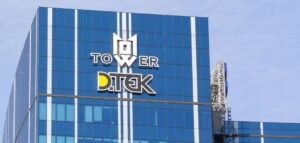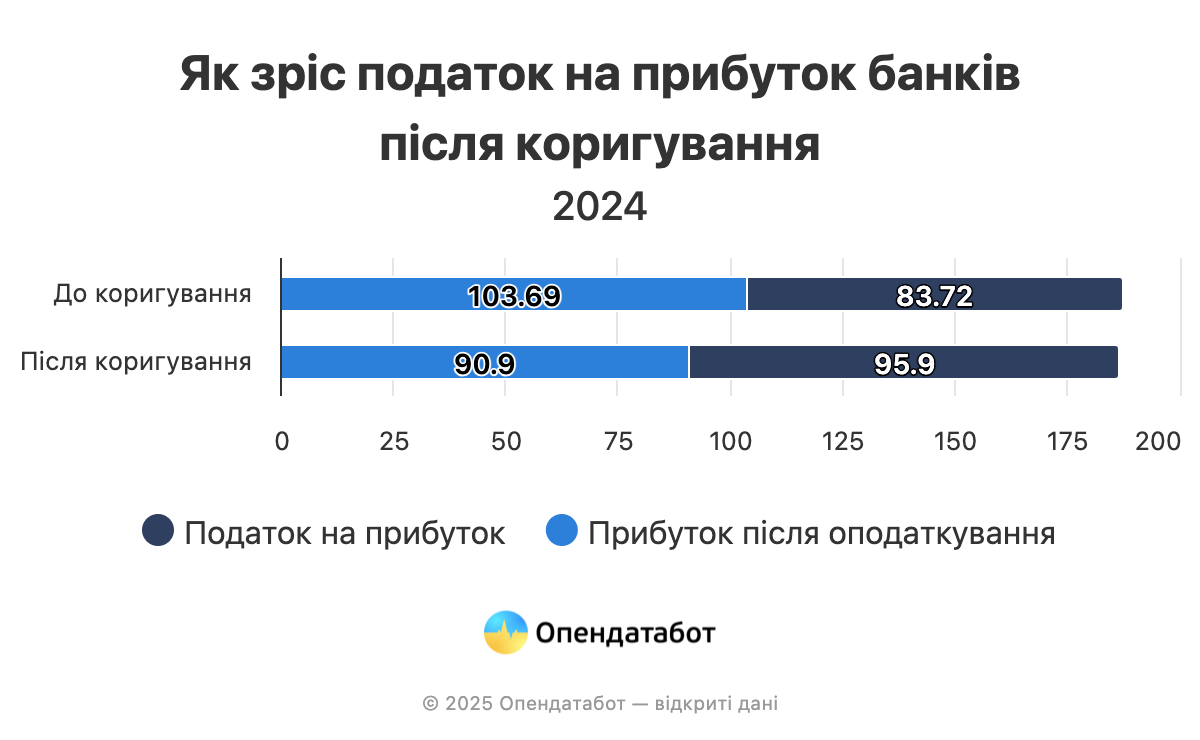
The state-owned Ukrgasbank (Kyiv) has granted Kryvyi Rih a seven-year loan of UAH 500 million to implement an energy conservation program in the city.
According to a statement posted on the bank’s website on Wednesday, the city will modernize its infrastructure, reduce heat loss, and improve energy efficiency, which should lower heating costs for residents.
According to the first deputy mayor of Kryvyi Rih, Yevhen Udod, a joint project will be implemented in the city, which provides for the modernization of the heating networks of the Kryvorizhteplomerezha municipal enterprise, the replacement of windows in the entrances of 199 residential buildings, and the reconstruction of premises for a new X-ray department at Hospital No. 1.
As specified to Interfax-Ukraine, the loan will be issued for a term of seven years, but other terms of the loan have not been disclosed.
According to the National Bank of Ukraine, in April 2025, Ukrgasbank ranked fifth (UAH 220.0 billion or 5.9%) among 60 banks operating in the country in terms of total assets.
As reported, in the first quarter of this year, Ukrgasbank issued two loans to Kryvyi Rih for a total amount of UAH 105.5 million for a term of seven years with a grace period of 12 months. The interest rate on the loan of UAH 87.6 million is 14.5% per annum in the first year and, from the second year, a variable UIRD 12M +3% with annual review, but not exceeding 23%. The second loan of UAH 17.9 million is issued at an interest rate of 16% per annum for the first year, which from the second year is UIRD 12M + 3.62% with annual review, but also not exceeding 23%. It was explained that 3.62% is 16% minus the current UIRD 12M at 12.38%.

In 2024, Ukraine exported 118,000 tons of dairy products, which is almost twice as much as imports, which reached 60,000 tons, according to the infographic “Dairy Map of Ukraine” for 2024, prepared by the Association of Milk Producers (AMP).
“Despite military losses, targeted shelling and destruction, a forced new wave of closures and relocations of farms from war-torn regions, exhausting blackouts and record heat in June-September 2024, which caused more than 50% of industrial farms to experience a significant drop in milk yields, the Ukrainian dairy industry has demonstrated significant achievements,” the industry association said.
As of January 1, 2025, the number of cows in the industrial sector increased by 1% compared to the previous period. The top five regions in terms of industrial livestock numbers, which together account for 51% of the total industrial cow population in Ukraine, are Poltava (52,700 head), Cherkasy (44,000 head), Chernihiv (35,400 head), Kyiv (34,000 head), and Vinnytsia (31,500 head).
At the same time, the largest increase in the industrial cow population last year was recorded in Mykolaiv (+14%), Ternopil (+10%), Khmelnytskyi (+5%), Cherkasy (+4%), and Kyiv (+3%) regions.
At the same time, there were losses, primarily in the frontline regions, in particular in Zaporizhzhia (-88%), Kharkiv (-47%), Sumy and Chernivtsi (-22%), as well as in Chernihiv (-11%).
According to the AVM, last year more than 90% of raw milk sent for processing was obtained from industrial farms. The leading regions in terms of production were Poltava (445.2 thousand tons), Cherkasy (371.5 thousand tons), Chernihiv (268.3 thousand tons), Kyiv (266.5 thousand tons), and Vinnytsia (260.2 thousand tons).
The largest increase in raw milk production over the year was recorded in the Mykolaiv (+18%), Ternopil (+13%), Khmelnytskyi (+9%), and Zhytomyr and Poltava (+8%) regions. In contrast, a significant decline in production was recorded in the Zaporizhzhia (-87%), Kharkiv (-45%), and Sumy (-6%) regions.
Despite blackouts and abnormal heat in June-September 2024, which led to a 25% reduction in milk yields in more than half of farms, industrial dairy farms (MTF) showed record productivity growth last year. In particular, the average milk yield in the industrial sector reached 8,167 kg/cow per year, which is almost 20% higher than in pre-war 2021.
Analysts noted five regions with the highest productivity of industrial cows in 2024, including: Ternopil (9,905 kg/cow per year), Mykolaiv (9,189 kg/cow per year), Khmelnytskyi (8,817 kg/cow per year), Poltava (8,447 kg/cow per year), and Cherkasy (8,443 kg/cow per year).
In addition, milk quality indicators have improved, with 55% of milk delivered for processing being extra grade and 25.3% being premium grade.
As for the average consumption of dairy products in Ukraine, analysts noted a 4% increase in 2024 to 209.3 kg/person compared to previous and pre-war years. Thus, despite the full-scale invasion, emigration, and reduced purchasing power, Ukrainians maintain stable demand for dairy products.
At the same time, exports of dairy products last year amounted to 118,020 tons, with cash proceeds of $296.81 million (+16% compared to 2023 and +20% compared to 2021).
The top five export categories included dry and condensed milk (25%), cheese (18%), butter (16%), casein (14%), and ice cream (14%).
Last year, 60.27 thousand tons of dairy products worth $290.34 million were delivered to Ukraine, with cheese accounting for 78% of imports. In monetary terms, the value of deliveries increased by 10% by 2023 but decreased by 24% by 2021.
Ukraine maintained a positive foreign trade balance in dairy products last year, exporting almost twice as much as it imported (118 thousand tons against 60 thousand tons), with almost the same value ($296.81 million in exports against $290.34 million in imports).
“This indicates the high added value of imported goods (mainly cheese) and a larger volume of exports (e.g., milk powder, butter, casein),” analysts concluded.

Do you dream of expressive yet natural lips?
Take advantage of the “Dream Lips” promotion at the ADONIS clinic: this is your chance to create the perfect contour and give your lips the volume you desire. Our experienced cosmetologists work with modern preparations, selecting an individual shape that will fit your image as harmoniously as possible.
Important: lip contouring is contraindicated during pregnancy and breastfeeding.
Sign up for the procedure through the ADONIS BEAUTY administrator at: 067 123 20 20
or through the contact center: 0 800 707 707
When signing up, please indicate that you would like to take advantage of the “Lips of Your Dreams” promotion.
We look forward to seeing you at: 39 Spaska Street
ADONIS is a network of private medical centers for adults and children. The ADONIS private clinic was founded over 25 years ago. Its network includes seven branches in Kyiv and the surrounding region, including a rehabilitation center and a stem cell laboratory. The clinic’s branches offer medical services in 65 areas. During the war, ADONIS branches with surgical departments provide quality medical care to military personnel and civilians.

According to the results of 2024, DTEK Energy companies paid 16.9 billion UAH in taxes to budgets of all levels, which is more than 14% higher than in 2023 (14.8 billion UAH), the operating holding reported.
“Our priority remains the rapid restoration of TPP capacities damaged and destroyed by shelling, preparation for summer consumption peaks and the next heating season. But despite the war, the company is fulfilling its obligations to the state,” said DTEK Energy CEO Alexander Fomenko.
In 2024, the company’s own investments in repairs, restoration of thermal power plants, and Ukrainian coal production amounted to UAH 11 billion.
“Thanks in large part to this, the restoration of thermal power generation capacity has been and continues to be carried out non-stop, and miners have managed to put 26 new coal seams into operation last year and another seven since the beginning of this year,” the company emphasized.
In total, in 2022-2024, DTEK Energy companies paid UAH 44 billion in taxes to budgets at various levels.
At the same time, the DTEK group itself paid UAH 41 billion to budgets at all levels in 2024 and became the largest taxpayer among Ukrainian companies at the end of last year.
As reported, DTEK Energy BV, the holding company of DTEK Energy, ended 2023 with a net profit of UAH 13.675 billion, compared to a net loss of UAH 5.798 billion in 2022.

Despite losses in eastern Ukraine, dairy production is not stopping but shifting to central and western regions, said Vitaliy Koval, Minister of Agrarian Policy and Food of Ukraine, at the conference “Dairy Industry: Ukraine – EU.”
The minister noted that 125 dairy farms are currently being built or modernized in Ukraine.
He expressed confidence that the stability of the dairy business is an example for the entire economy, and that the effective distribution of margins between producers, processors, and retailers is not only a matter of economics but also of trust.
“Only synergy between all participants can provide the economies of scale that will allow creating added value both in the country and for export. I am grateful for the open and professional dialogue. It was a fruitful conversation, which I am convinced will have practical results for the industry,” Koval emphasized.
At the same time, he noted that pricing is the key to fairness in the chain and called on producers to move from raw materials to finished products.
“A ton of Ukrainian agricultural exports costs an average of EUR 291. For comparison, in the EU it is EUR 1,536. This is the difference between a raw material economy and an added value economy. Our task is to ensure that the share of livestock and processing reaches over 50% in the agricultural sector,” the Minister of Agricultural Policy concluded.

Revised data on bank profits and taxes published
The National Bank of Ukraine has published the final version of the banks’ balance sheet reports for 2024, which takes into account adjusting entries. Pre-tax profit decreased by 1% compared to the previous report, while tax payable increased by almost 15%. The total after-tax profit of banks decreased to UAH 90.9 billion. 93% of the additional charges fell on state-owned banks.
The total pre-tax profit of Ukrainian banks for 2024 amounted to UAH 186.8 billion, almost the same as in the previous NBU data. However, after-tax profit fell significantly, by UAH 12.8 billion (i.e., 12%), and now stands at UAH 90.9 billion.
This was due to a significant additional income tax assessment, which ultimately increased by 15% and reached UAH 95.9 billion. Accordingly, taxes will eat up 51% of profits. For comparison, in 2023, this figure was 48%, and in 2022, only 25%.
93% of all additional charges fell on state-owned banks, which is 11.78 billion UAH in additional taxes. Oschadbank paid the most: its income tax after adjustment increased 2.5 times, from 4.3 to 10.66 billion UAH (+6.36 billion UAH).
Ukreximbank paid an additional UAH 2.94 billion — its tax increased 15 times. Sens Bank (formerly Alfa-Bank) — 58 times, to UAH 1.97 billion (+UAH 1.94 billion). The only state-owned bank where the tax decreased was Ukrgasbank: -UAH 455 million.
Banks with foreign capital were charged a total of only UAH 118.57 million.
Banks with private capital were charged UAH 1.34 billion, with the largest amounts going to A-Bank (+UAH 541 million), Bank Pivdenny (+UAH 308 million), and MTB (+UAH 225 million).
The largest increase in income tax after adjustment was recorded by the Ukrainian Bank for Reconstruction and Development, which rose 84 times, from UAH 247,000 to UAH 20.76 million.
Overall, income tax after adjustment increased for 22 banks, by UAH 12.7 billion. At the same time, it decreased by UAH 513.4 million in 12 banks (88.8% of which fell on Ukrgasbank). As a result, the amount of tax exceeded the net profit of banks by UAH 5 billion.
https://opendatabot.ua/analytics/banks-fee-2024
